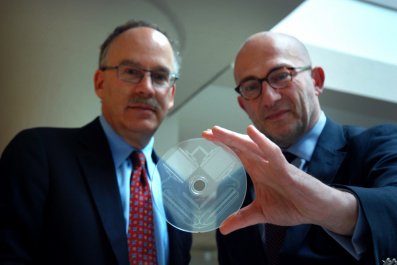Bankers, working in increasingly high-pressure environments for long stretches, are taking drugs prescribed for conditions such as ADHD in an attempt to stay at the top of their round-the-clock game – a practice is known as "brain-doping".
Those working in financial sectors are turning to drugs like Adderall to improve their concentration to outshine their competitors or simply fulfil exhausting obligations. As one member of a chat forum for accountants recently advised his colleagues, those using these cognitive-enhancing drugs are "headed down to Lindsay Lohan country".
But brain-enhancing drugs, more commonly used by university students, pose more immediate and widespread risks. Their side effects include not just addiction but overconfidence in one's own abilities - an attribute which could be very dangerous, for example, in a high-level banker who is deciding on trading great quantities of stock and commodities, as a string of rogue trader convictions show.
"Today there's lots of competition in the workplace, people are often poorly managed and there are constant demands for higher productivity," notes Dr George Fieldman, a London psychotherapist who treats many City workers and executives. "It's not surprising that they turn to cognitive-enhancing drugs."
If their co-workers achieve better results by doping their brains, colleagues will feel pressured to do the same, particularly if management don't appear to actively discourage the practice.
Brain-doping has, in fact, become so serious a workplace concern that Germany's education ministry is financing a new academic research project on the issue. And in Sweden, brain-doping has become a matter for the government, with its advice body on medical ethics, SMER, now tackling the issue. According to SMER, there's a substantial risk that brain-doping will lead to unfair conditions in the workplace.
"Though precise figures are, of course, hard to establish, abuse of prescription medicine generally appears much more widespread in Western industrialised countries than alcoholism or the use of illicit drugs combined, with the exception of marijuana," explains Professor Perikles Simon, a doctor and professor of sports medicine at the University of Mainz in Germany.
Simon and several co-authors recently presented ground-breaking statistics about the extent of brain-doping among surgeons. In an article in the scientific journal BMC Medicine, the researchers report that 9% of surgeons take cognitive-enhancing drugs.
Students remain the most frequent brain-dopers: the journal Pharmacotherapy reports a 20% brain-doping prevalence among students. But, as Simon and several other scientists show in an article in the academic journal PLOS ONE, athletes are also frequent brain-dopers, with 15% now taking brain-enhancing drugs, compared to 13% who engage in physical enhancement doping.























